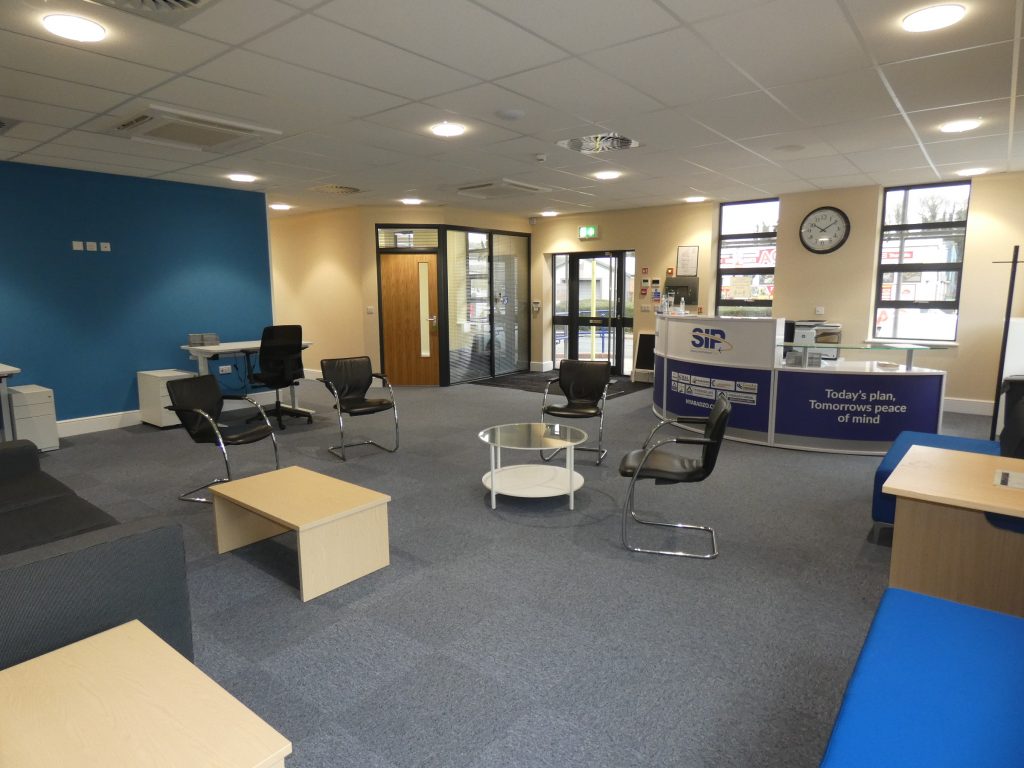Tag: planning
Land and Property Professionals
We sell, rent, manage, survey, plan and advise...what can we do for you?
We sell, rent, manage, survey, plan and advise...what can we do for you?

There are a few points worth sharing with you on the ever changing world of planning.
The changes will enable the change of use of premises in a commercial, business or service purpose (Class E) to use as a dwelling house (Class C3). This is subject to limitations and, in particular, the building must have continuously been vacant for at least three months or comprised a Class E use for at least two years and cannot exceed 1,500 square metres.
The review of the Bedford Borough Council Local Plan (adopted January 2020) is now open for a new consultation and concentrates on the following policy areas:
The Council has defined a range of potential spatial strategies for the Plan that vary in focusing growth in the urban area to growth in villages and in new settlements proposed in both the A6 and A421 corridors. The consultation is welcoming views on these options and an opportunity to comment on the supporting documentation. The consultation runs until 3rd September 2021 at 5 pm. If you would like us to make a representation on your behalf as part of this consultation, please do not hesitate to get in touch.
The Central Bedfordshire Local Plan has been found ‘sound’ by the Planning Inspector and was formally adopted at a Full Council meeting on 22nd July 2021. The new Local Plan now carries full weight in the determination of planning applications within Central Bedfordshire’s administrative area. The Plan shall be subject to an early partial review within six months of its adoption and this shall create new opportunities for the promotion of sites.
For more information or to discuss your project with our Planning & Development team, please call Shannon Fuller, Assistant Planner, on 01234 362913 or email sef@robinsoandhall.co.uk

In a very unusual project, Robinson & Hall was appointed to act for a client who identified a property in Letchworth suitable for their funeral business.
The initial enquiry was from the client’s solicitors who required an experienced RICS qualified building surveyor to advise upon the condition of the property and feasibility for conversion. Before the purchase of the property, our experienced building surveyor carried out a detailed building survey and although the property was generally sound, this identified a number of significant essential repairs, including leaks through roof lights and aspects of historic poor quality refurbishment work.
On the basis of the report findings, the client was able to negotiate a £75,000 reduction in the purchase price in lieu of the necessary repair work.

Alongside the purchase process, the client instructed Robinson & Hall to prepare a design and obtain planning permission for change of use from car showroom to funeral parlour. Our building surveyors measured the building and prepared plans, whilst our Planning department submitted a planning application for this special use under a Sui Generis planning class. North Hertfordshire District Council granted permission, much to the delight of our client, who has praised Robinson & Hall’s team for their dedication and perseverance in securing the change of use.
Under the direction of Senior Building Surveyor, Stuart Brown, the Architecture & Building Surveying department prepared a detailed design and specification, including works to rectify defects identified in the original building survey. The project was tendered to several local building contractors and one was appointed under a Joint Contracts Tribunal (JCT) Contract to carry out the building works.

Refurbishment commenced in July 2019 but due to delays through Covid 19 restrictions was not completed until June 2020. The final cost of the building work was in excess of £600,000. We assisted our clients with contract administration and project management services through the build period.
Our client is now utilising the building with frequent on-site funerals and providing bespoke services to assist those arranging for burial in Africa.
Stuart comments “It was a very unique project and one which you do not get an instruction for every day. We were pleased to assist our clients in converting the building and adapting to meet their objectives. There were plenty of issues to overcome including navigating through the Covid pandemic. However, with careful planning, we managed to bring the project within the agreed timescales. Our client was very pleased with the completed works and the combined services Robinson & Hall provided.”
For more information or to find out how Robinson & Hall can help you please contact Stuart Brown, Chartered Building Surveyor on 01234 362923 or email spb@robinsonandhall.co.uk
Abel Bunu, Senior Planner at Robinson & Hall provides a planning update of key areas which may interest you.
New PDR for extensions above existing buildings came into force on 31st August 2020. The changes allow up to two extra storeys on an existing house or one extra storey on a bungalow. There are also extra storeys allowed on flats and some commercial buildings.
Another amendment relates to the insertion of Class ZA which allows for the demolition of a single detached building that was in existence on 12th March 2020 and was used for office, research and development or industrial processes, or a free-standing purpose-built block of flats, and its replacement by an individual detached block of flats or a single detached house within the footprint of the old building.
The right provides permission for works for the construction of a new building that can be up to two storeys higher than the old building with a maximum overall height of 18 metres.
Important points to be aware of:
Milton Keynes Council intends to introduce an ‘Article 4 Direction’ in the town centre to remove Permitted Development Rights for the change of use from office to residential accommodation.
The ‘Article 4 Direction’, if confirmed, would take effect from 2nd July 2021, and would mean that anyone proposing to change an office to residential use would be required to apply for planning permission to the Council.
It is likely that the Council will be flooded with applications for office to residential conversion in order to beat this deadline.
On 30th September 2020, the Housing Secretary, Robert Jenrick announced that new homes delivered through Permitted Development Rights will have to meet the Nationally Described Space Standard which start at 37m² of floorspace for a new one bed flat with a shower room or 39m² with a bathroom, ensuring proper living space for a single occupier.
No date has been announced regarding when these changes will come into force which means that there is a likelihood that local planning authorities could be inundated with applications for prior approval before the new legislation is introduced.
If you would like more information on the above or would like to find out how our Planning & Development team can help you, please contact Andrew, Abel, or Shannon.
Andrew Barr, Head of Planning & Development at Robinson & Hall reports on these changes:
We reported in the summer of government proposals on major changes to the planning system, designed to simplify the planning process and accelerate development. Proposed changes included the introduction of zoning areas which in certain ‘growth zones’ may mean that development could proceed without reference to the planning authority. The consultation is due to end on 29th October and we will provide further updates when feedback is received.
In response to the changing face of the high street, the government has made a radical overhaul of the regulations surrounding Planning Use Classes encompassed in the Use Classes Order 1987. The Order has seen some modifications since its introduction, but the original Order does not perhaps cater for the myriad of uses in the 21st century high street.
The main change is to merge the number of uses into three main classes:
New Class E
This will cover commercial, business and services. This is a very broad ranging use class which will include retail space (current use classes A1-A3), office space B1 and a number of other uses including health centres, clinics, day centres, day nurseries, creches, gyms and most indoor recreations.
New Class F1
This will cover learning and non-residential institutions. It will include a number of former D1 uses e.g schools, non-residential and education training centres, museums, libraries, public halls, exhibition halls, places of worship and law courts.
New Class F2
This will include certain former A1 retail uses (local convenience stores), halls, meeting places, swimming pools, skating rinks, outdoor recreation.
Sui Generis
This is the ‘none of the above’ category and has been widened to include pubs or drinking establishments (currently A4) and takeaways (A5). A number of D2 uses are also included e.g cinemas, concert and bingo halls.
All B2 (industrial) and B8 uses (storage and distribution) are unchanged.
Also unchanged are the former C class uses covering residential, hotels and guesthouses.
Merging all uses into one class (particularly relevant with Class E) offers greater flexibility for property owners and supports the high street into the 21st century. It should also afford greater protection for services such as pubs and community shops e.g local convenience stores.
Whilst the changes should be broadly welcomed and should see the end of the large number of applications for minor changes of use clogging up the system, there is some nervousness surrounding the implications of these regulatory changes. Under the new system for example, it will be possible to change the use of premises from say a dental practice to a restaurant, uses with considerably differing impacts on the local neighbourhood, without recourse either to the planning authority or to the local community.
If you would like to discuss the implications for your property on these changes, please do not hesitate to contact one of the planning team.